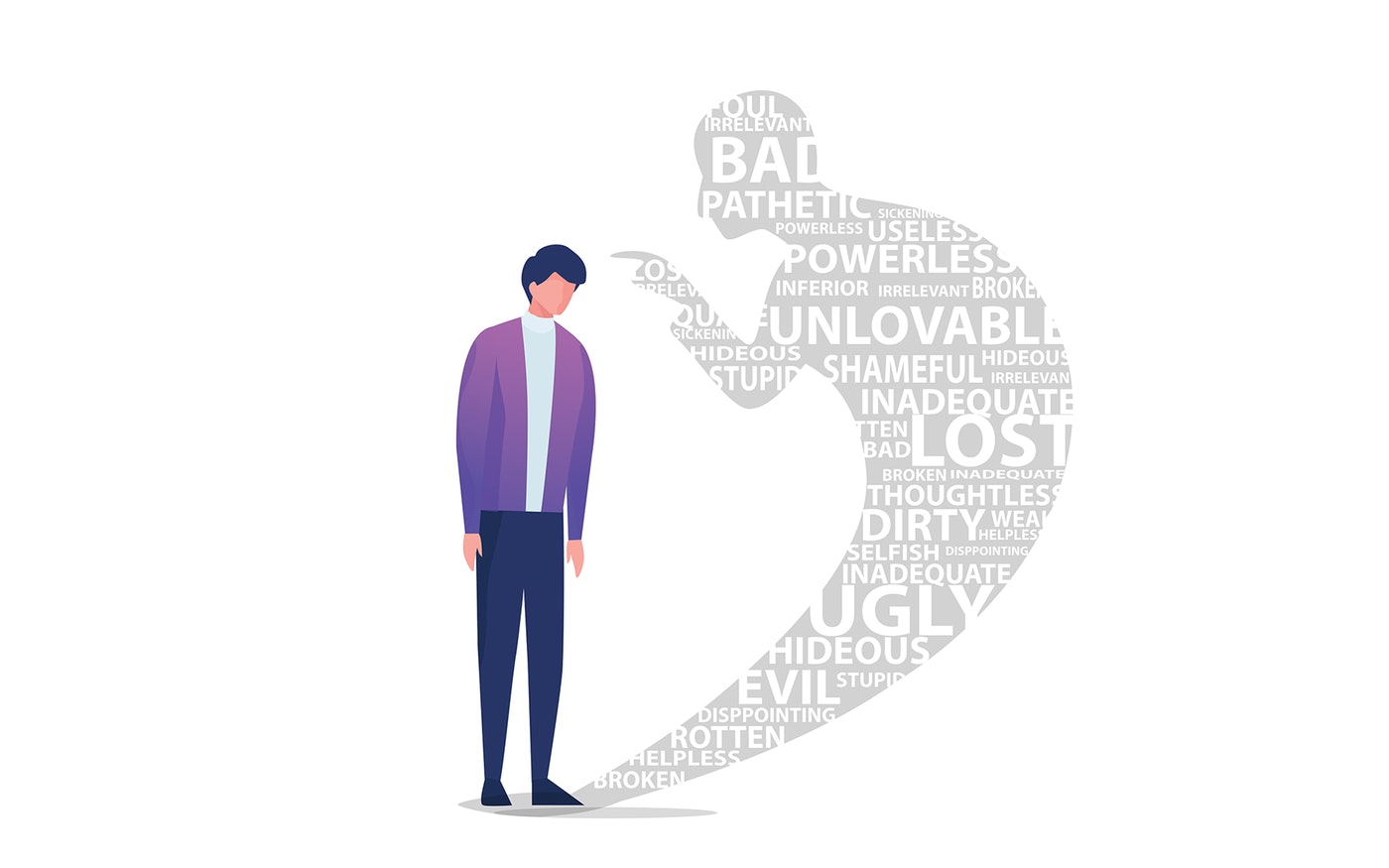The Inner Critic by Brent Michel

We are all constantly talking to ourselves. This conversation doesn’t happen out loud, but in our heads, in the form of our thoughts.
“Oh I need to get some milk from the store.”
“I would like to see a movie this weekend.”
“Oh those pants look terrible.”
“Where did I put my keys?!”
It’s a near constant conversation we’re having, and one that’s often very useful. After all, we do have to find our keys, pick up milk at the store, and avoid wearing terrible pants. But do you ever find that this inner conversation can become negative, mean, or downright cruel?
“I’m worthless.”
“I can’t do anything right.”
“No one will ever like me.”
I imagine that these sorts of thoughts are familiar to many of us. These are things we would never dream of saying to a friend, family member, or even a stranger on the street. If someone else said them to us, we would rightly call them a jerk, and tell them to get lost. And yet, there is a member of our internal conversations that tells us just these sorts of things; an Inner Critic. And when this Inner Critic speaks, we tend to listen to it and believe the negative, judgemental and distorted things it has to say, leading us to feelings of frustration, anxiety, self-loathing and helplessness.
The thing is, the Inner Critic is wrong. The stories it tells have only a dim relation to reality, selecting attending to the negative over the positive in our lives, overemphasizing this negative and making out this negative to be absolute and unchanging. The Inner Critic gets in our way, telling us we can’t accomplish what we wish to accomplish, that we can’t enjoy the relationships we wish to enjoy, and that we are not worthy of happiness.
We often can’t control the thoughts that pop into our head, and we can’t simply decide to make the Inner Critic stop talking. But, through patient and persistent practice, we can learn to be more aware of the Inner Critic and not fall into the trap of believing it when it belittles and shames us. Here are some strategies you can try out:
- Notice when the inner critic is speaking. Next time you find yourself having thoughts such as “I am a total failure” or “There’s no way I can accomplish this goal,” label these as the voice of the Inner Critic. A good rule of thumb is to ask yourself: “Would I say this to a good friend?” If not, then it is not something worth saying to yourself.
- Notice how you feel when the Inner Critic is speaking to you. How does this critical voice affect your body? For many, listening to the Inner Critic leads to feelings of sadness, anxiety, helplessness and a lack of motivation.
- Notice what the Inner Critic is like. Does it have a voice of its own? For some, their Inner Critic may have the voice of a judgmental parent, or a harsh teacher. The better you understand your Inner Critic, the easier it will be to recognize it.
- Challenge the Inner Critic. The Inner Critic is overly negative and absolute in its judgement. If you fail a test, the Inner Critic does not say “You probably didn’t study enough for that, but in the future you can prepare more and do better.” Instead, it says “You are terrible at this subject and can never do well.” The Inner Critic is always wrong. If you ask it what evidence it has to support its claims, it will always come up empty handed.
- Externalize what the Inner Critic has to say. This means to not just keeping your negative thoughts in your head, but writing them down in a journal, or speaking them out loud to a trusted friend, family member or counselor. Often we believe our overly negative thoughts when they are just thoughts, but when we bring the Inner Critic’s words into the spoken or written word we can better recognize how extreme and distorted they are.
- Practice self-compassion. It can be hard sometimes for us to be kind to ourselves, but this self-directed kindness can serve as a powerful antidote to the Inner Critic’s toxicity. Practice self-care, such as taking time to do the things you enjoy and be with the people you enjoy. Practice being a friend to yourself, through your actions and thoughts. One way to do this is by practicing Metta, or loving kindness meditation.
For many of us, listening to the Inner Critic has been a long-time habit, and so incorporating the tips above will take time, patience and most importantly, a spirit of kindness towards ourselves. Continuing to get caught up in the stories the Inner Critic tells doesn’t mean you can’t keep working on noticing and challenging them, and don’t let the Inner Critic tell you otherwise!
“Lighten up on yourself. No one is perfect. Gently accept your humanness.” – Deborah Day
- Categories: